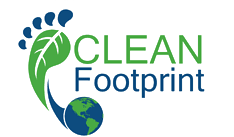get to know us
Our Company History

Current Active Markets


2023
Sells 50MW (approx. 400 acres) Ohio portfolio to EDP Renewables. Expands into Texas and Indiana. Grows Executive and Sales Teams.
2022
Clean Footprint originates over 200 Megawatts in Distributed Generation solar projects. Expands into Ohio and Illinois.
Clean Footprint originates over 200 Megawatts of distributed solar for Community Solar. Expands goal to 1000 Megawatts.
2020
Clean Footprint expands into Virginia to capitalize on State Mandated solar program. Partners with Pivot Energy to complete a multi-year 500-Megawatt goal.
2018
Clean Footprint originates over 20 Megawatts of solar in Massachusetts.
2016
Clean Footprint moves markets from Florida to Massachusetts, a solar friendly state with supporting state law.
2014
Clean Footprint completes two solar projects. One for a local food cooperative and the other for the City of Winter Park Utilities Department.
2012
Clean Footprint works to change Florida laws to allow for independent solar companies to set up and thrive.
2010
